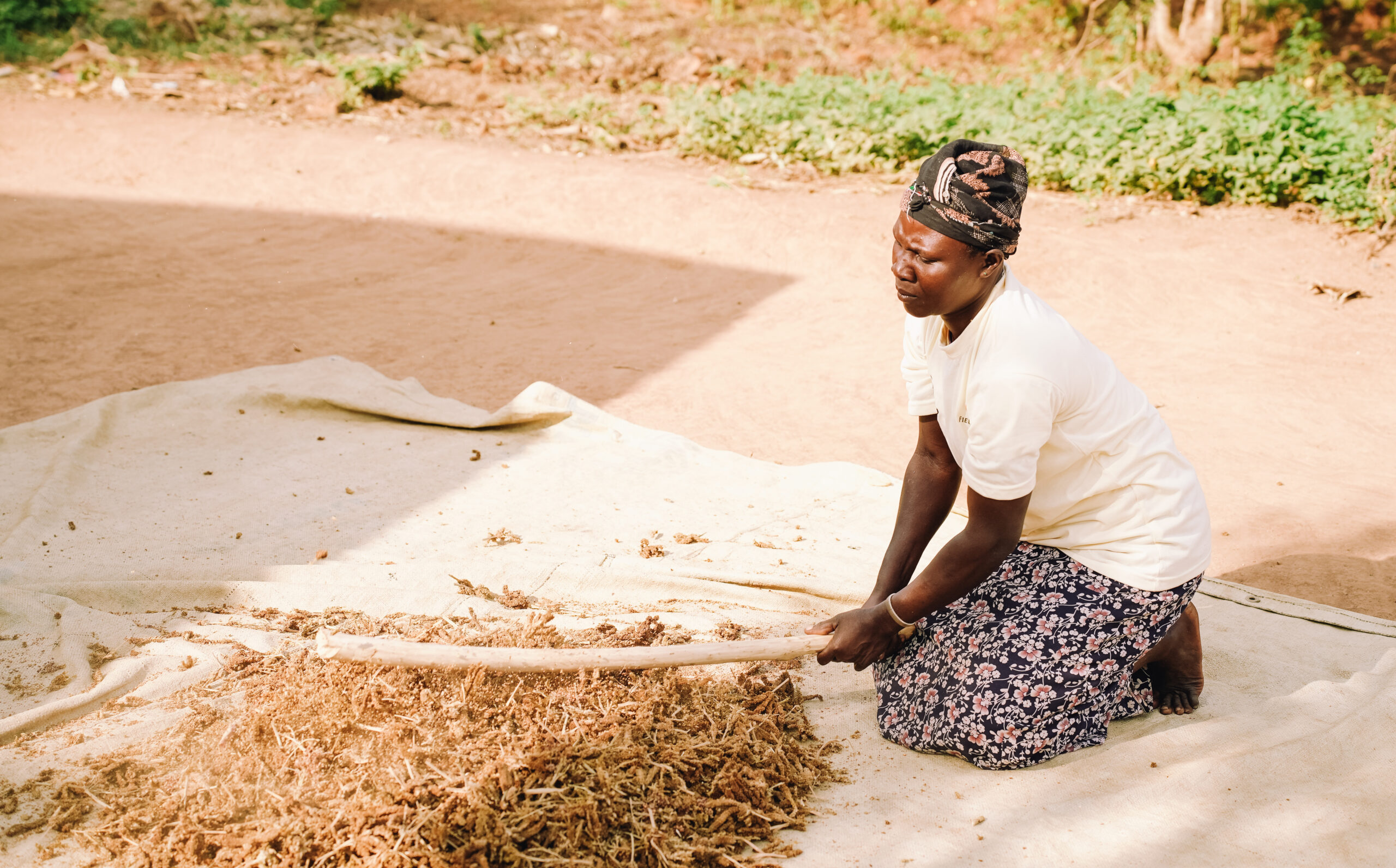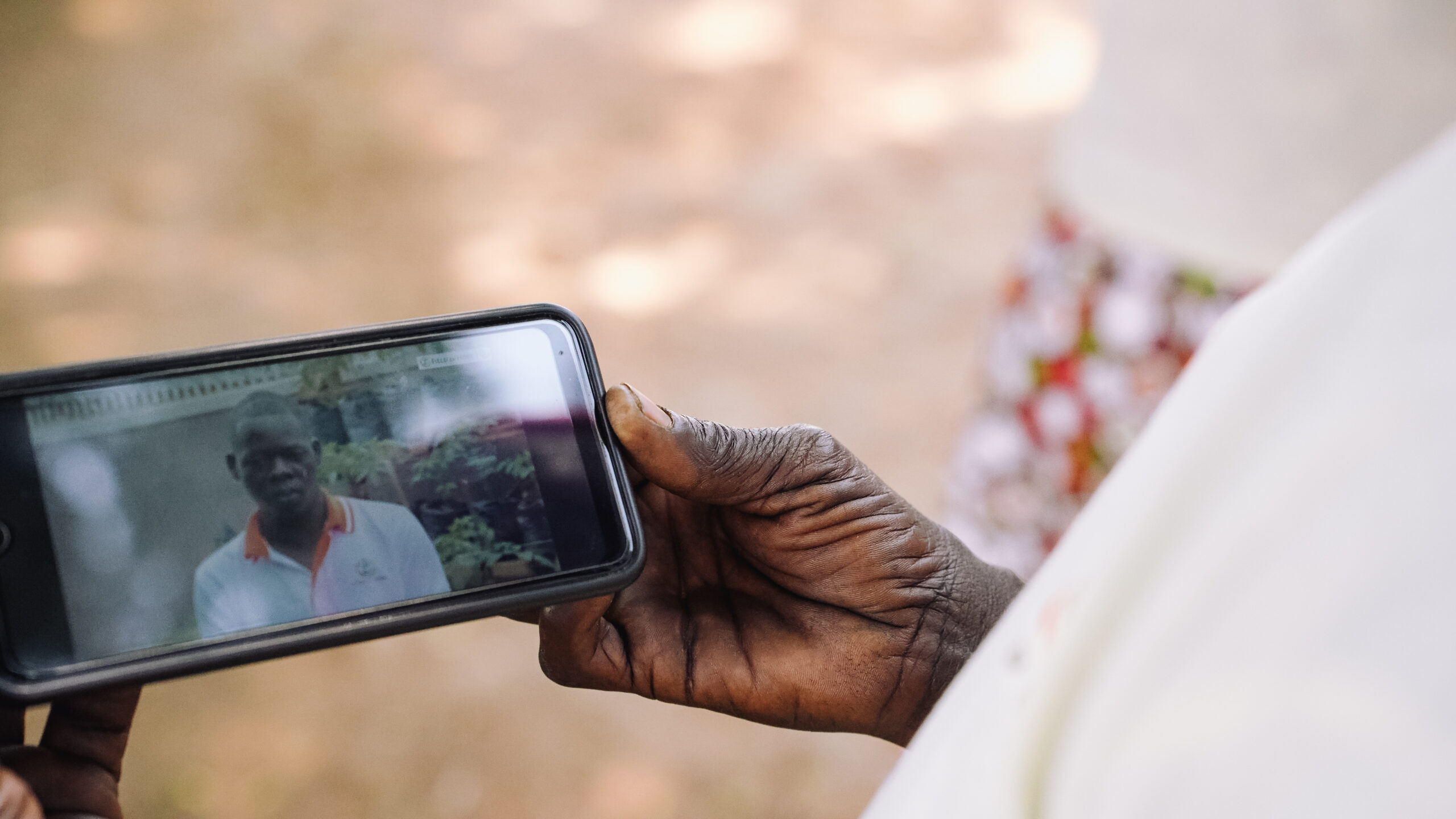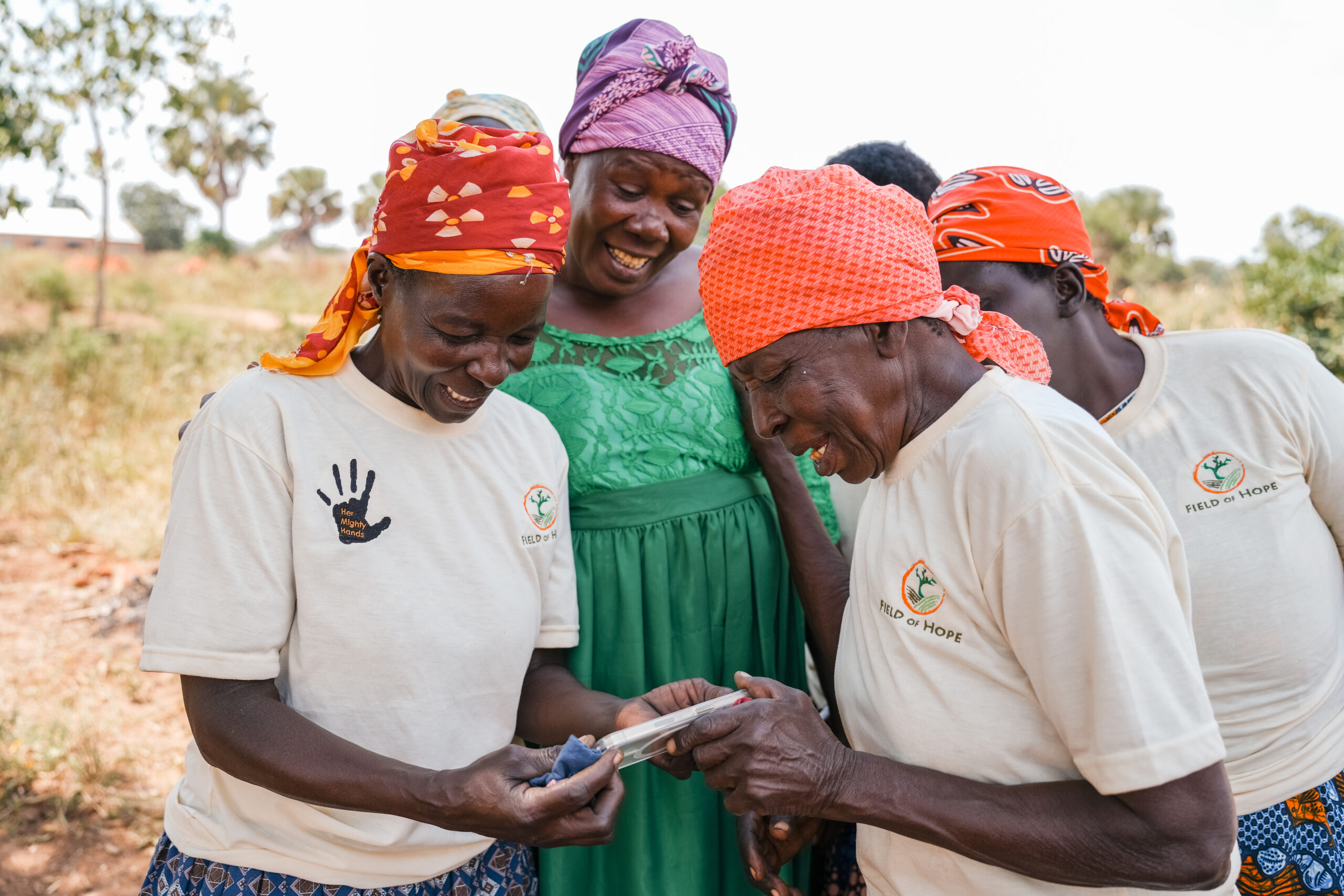Her Mighty Hands
April 17, 2023
|
Dorian Martin '06
Like every mother, Adero Judith wants a better future for her daughter, who dreams of being a physician. Yet, Judith, who is a female farmer in Uganda, faces significant challenges ranging from drought to food insecurity that can put her future as well as that of her daughter in jeopardy.
Fortunately, Judith’s ability to grow more and better crops is increasing—as is her income—thanks to Ryan Staples, a graduate of Mays Business School’s Full-Time MBA program.
Staples has founded the non-profit Her Mighty Hands, an initiative that uses technology to help these women farmers increase their production. “The whole idea is to empower women,” Staples said. “We’re not coming in dropping off money or port-a-potties.
We’re dropping off knowledge –and this is the primary gap that these women have. They don’t have access to knowledge.”
A COMPELLING CASE
Her Mighty Hands’ initial concept was developed by an interdisciplinary Texas A&M team that Staples led in the 2021 Norwegian Business School Global Case Competition. The contest drew 85 teams from 60 top-tier universities, who were challenged to generate game-changing solutions to food production issues involving obesity, malnutrition, and climate change.
The Texas A&M team–which included Danette Philpot ’23, Garrett Brogan ’22 ’25, and Meikah Dado ’22 ’25 from the College of Agriculture and Life Sciences’ Department of Agriculture Leadership and Communications–earned third place in the competition.
In proposing their solution, the team noted that more than one-third of Ugandans suffer from chronic malnutrition, which is compounded by significant gender inequality issues in the nation’s food production system. Eighty percent of the food consumed by the nation’s populace is produced by women; however, one Ugandan man can produce three times more food than a Ugandan woman. “With 80% of the food producers only one-third as productive as their counterparts, there is a huge area of opportunity,” Staples noted.
The Aggies pointed out that the reason for this imbalance is that female farmers cannot attend in-person agricultural best-practice trainings because they are working in the fields and caring for children and the elderly. The team proposed providing access to extension resources through videos, produced in the local dialect, on handheld electric devices with solar chargers that the women, many of whom are illiterate, could watch repeatedly to learn best practices in farming.

The team projected that if the initiative was implemented over a 10-year period, 3 million women would be empowered. Furthermore, their analysis found that this innovation could lead to a 30% increase in overall agriculture productivity and a $450 million increase in Uganda’s GDP.
TAKING THE NEXT STEPS
Energized by the team’s success, Staples began to strategize how to make the dream a reality. “I had become so passionate about the idea that at that time, I was committed to pressing forward—but I had no idea at that time what I was getting myself into to start my own non-profit business,” he said.
Despite its promise, the initiative needed more substance to attract funders. To that end, Staples decided to use the Full-Time MBA’s required capstone project to lay the foundation to start a non-profit. “I wasn’t really making a ton of traction until that happened. That helped me get everything off the ground,” he said. “From that point, I was able to identify my business strategy, what needed to happen, and how I could take this idea and make it become a reality.”
As a part of the capstone project, Dr. Janet Marcantonio connected Staples with Chris Fields, who served as a mentor and helped the graduate student focus. Staples credits Fields’ counsel, which was based on his experience running a non-profit in Ghana, with accelerating the launch of Her Mighty Hands by 5-10 years.
As he began developing the nonprofit, Staples knew that he wanted to reflect the women’s commitment in the organization’s name. “What I am trying to do is to essentially help women lift up themselves, their families and communities from generational poverty,” he said. “I was thinking of the tools that these women use to leverage that. These women have such incredible resilience and grit—and it’s through the labor of their hands in their fields that they’re able to feed their families and empower themselves.”
One of the initial questions that Staples needed to explore was funders’ concerns about whether the Ugandan women would abuse the smartphones or tablets. He connected with a Ugandan NGO, Girl Power Project, which helped him coordinate primary market research with 10 female farmers. The research effort garnered very positive feedback from the women.
He then had the opportunity to pitch the idea of creating a partnership that would give Staples’ access to women farmers to another Ugandan NGO, Field of Hope. With the organization’s commitment in hand and some initial fundraising, Staples launched the pilot project in February 2022.

That initial venture offered some impressive results. The women who had access to the smartphones had, on average, 4.9 months of food security after their harvest season, which was 88% more than the control group without phones. The women with smart phones also earned seven-times more income from post-harvest crop sales than the control group.
A visual comparison between the two group’s fields also showed significant differences in crop growth. “You can visibly see a dramatic increase in the well-being of the crops among women who used these phones,” Staples said. “The data supports that as well.”
The farmers with phones also credited the best practices with increasing their productivity in other ways. For example, Akullo Flo noted that approximately 40% of her previous crops were destroyed by insects, diseases, and drought. Thanks to the technology and videos, she changed her farming methods and now has a much higher crop yield. The extra profits are then used to buy malaria treatments and her children’s school uniforms.
The pilot project also created significant positive ripple effects as two of the women in the pilot group were able to grow enough produce to be able to send their children to school for the first time ever. “Her Mighty Hands gives me hope to not worry so much,” Judith said. “I now know when to plant my crops timely to get a better harvest, which helps send my children to school.”
Over the past year, Staples has been consistently impressed with the women’s commitment to learning. “They’re part of a group of women who have shown that they want to improve their status in life,” Staples said. “It’s the difference between keeping your children at home to do the farm work with you or sending your daughters to school—or keeping your daughter from getting married off as a child bride because you can afford to feed her for a couple of extra years so she can become an adult. This is the different changes in the women’s lives—and they’re trustworthy because they are part of the system.”
LENDING A MIGHTY HAND
Staples has legally established Her Mighty Hands as a non-profit. The organization’s board includes several familiar faces–Alexa Wilcox, who previously served as Field of Hope’s executive director, as well as Dado, who is now a Texas A&M Ph.D. student and is coordinating the group’s data analysis.
With a second fundraiser completed, Staples is focused on setting up the non-profit’s website and increasing marketing efforts. In 2023, he also wants to raise $50,000 to provide Her Mighty Hands smartphones with training videos to more women in Field of Hope’s cohorts. The partnership with Her Mighty Hands and Field of Hope wants to produce new videos in English and the local dialect during the spring growing season and to launch a second pilot project in the fall.
He also foresees the program continuing to grow. “The idea is for these women who are part of this pilot to become community leaders and spread it out to their communities,” Staples said. “This solution is so scalable that we could bring this to any country in the world as long as we have a way to build up these communities.”
At the end of the pilot, every woman said two things: “The first was thank you so much for this idea and allowing us to participate—and thank you to the donors,” Staples said. “And the second, without fail, was we want this solution for all of our sisters in the cohorts.”
A CAN-DO ATTITUDE
Ultimately, Staples credits the formation of Her Mighty Hands to his time spent as a Full-Time MBA student at Texas A&M. “It’s through the goodness of others, the connections from Mays Business School and Texas A&M at large as to why this was successful,” he said. “Apart from the connections, which accelerated the launch by 5-10 years at the least, I also developed the skillset and the mindset. We learn in the MBA program how to run a business and the type of questions to ask and the types of things to consider. I did not have that skillset prior to my time at Mays Business School.”
Additionally, Staples appreciates the confidence that he acquired at Mays, which has helped him launch Her Mighty Hands. “Before entering business school, I didn’t believe in
myself as much as I do now and what I was able to contribute to the world and others,” he explained. “Mays Business School’s mission to improve the world’s prosperity was foundational in helping me know that I wanted to give back to others. I now have that skillset and I realize that I’m not an imposter; I can do something that big and outside of myself.”



